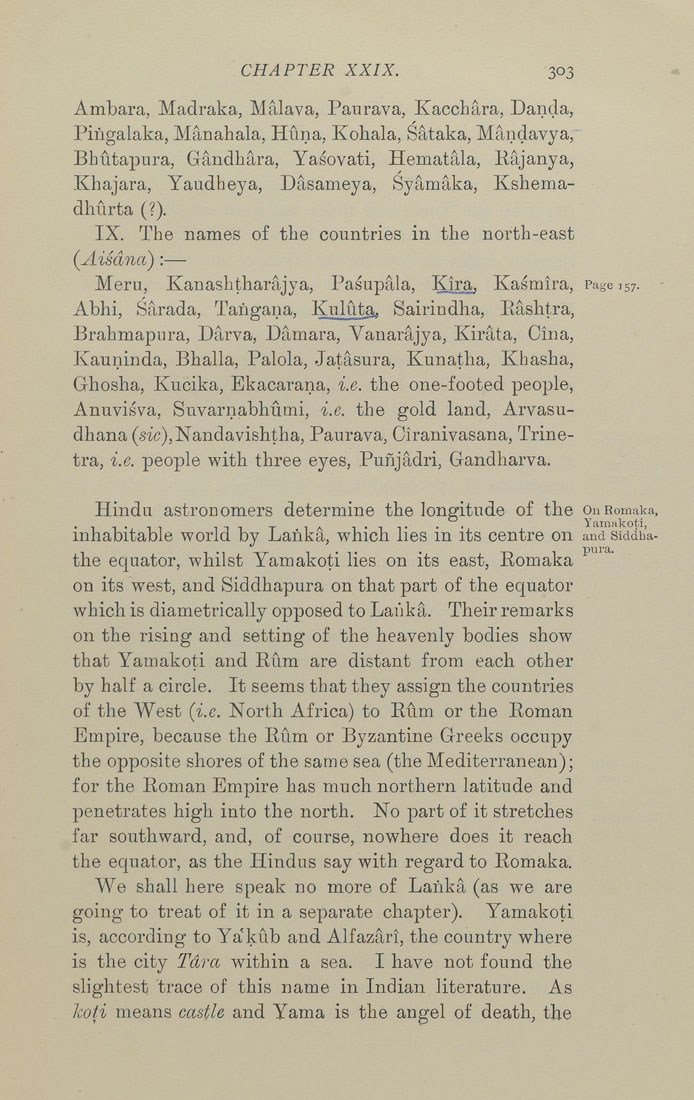CHAPTER XXIX. 303
Ambara, Madraka, Malava, Paurava, Kacchara, Danda,
Pihgalaka, Manahala, Hiina, Kohala, Sataka, Mandavya,"
Bbutapura, Gandhara, Yasovati, Hematala, Rajanya,
.Khajara, Yaudheya, Dasameya, Syamaka, Kshema-
dhiirta (?).
IX. The names of the countries in the north-east
(Aisdna) :—
Meru, Kanashtharajya, Pasupala, Kira, Kasmira, Page 157.
Abhi, Sarada, Tahgana, Kuluta., Sairindha, Rashtra,
Brahmapura, Darva, Damara, Vanarajya, Kirata, Cina,
Kauninda, Bhalla, Palola, Jatasura, Kunatha, Khasha,
Ghosha, Kucika, Ekacarana, i.e. the one-footed people,
Anuvisva, Suvarnabhiimi, i.e. the gold land, Arvasu-
dhana (s'ic),Nandavishtha, Paurava, Ciranivasana, Trine-
tra, i.e. people with three eyes, Punjadri, Gandharva.
Hindu astronomers determine the longitude of the onPomaUa,
• IT- 11 1-11 T lA I'll- ■ ' Yamakoti,
inhabitable world by Lanka, which lies in its centre on and siddba-
the equator, whilst Yamakoti lies on its east, Romaka
on its west, and Siddhapura on that part of the equator
which is diametrically opposed to Laiika. Their remarks
on the rising and setting of the heavenly bodies show
that Yamakoti and Rum are distant from each other
by half a circle. It seems that they assign the countries
of the West (i.e. North Africa) to Rum or the Roman
Empire, because the Riim or Byzantine Greeks occupy
the opposite shores of the same sea (the Mediterranean);
for the Roman Empire has much northern latitude and
penetrates high into the north. No part of it stretches
far southward, and, of course, nowhere does it reach
the equator, as the Hindus say with regard to Romaka.
We shall here speak no more of Lanka (as we are
going to treat of it in a separate chapter). Yamakoti
is, according to Yakub and Alfazari, the country where
is the city Tdra within a sea. I have not found the
slightest trace of this name in Indian literature. As
koti means castle and Yama is the angel of death, the
|








